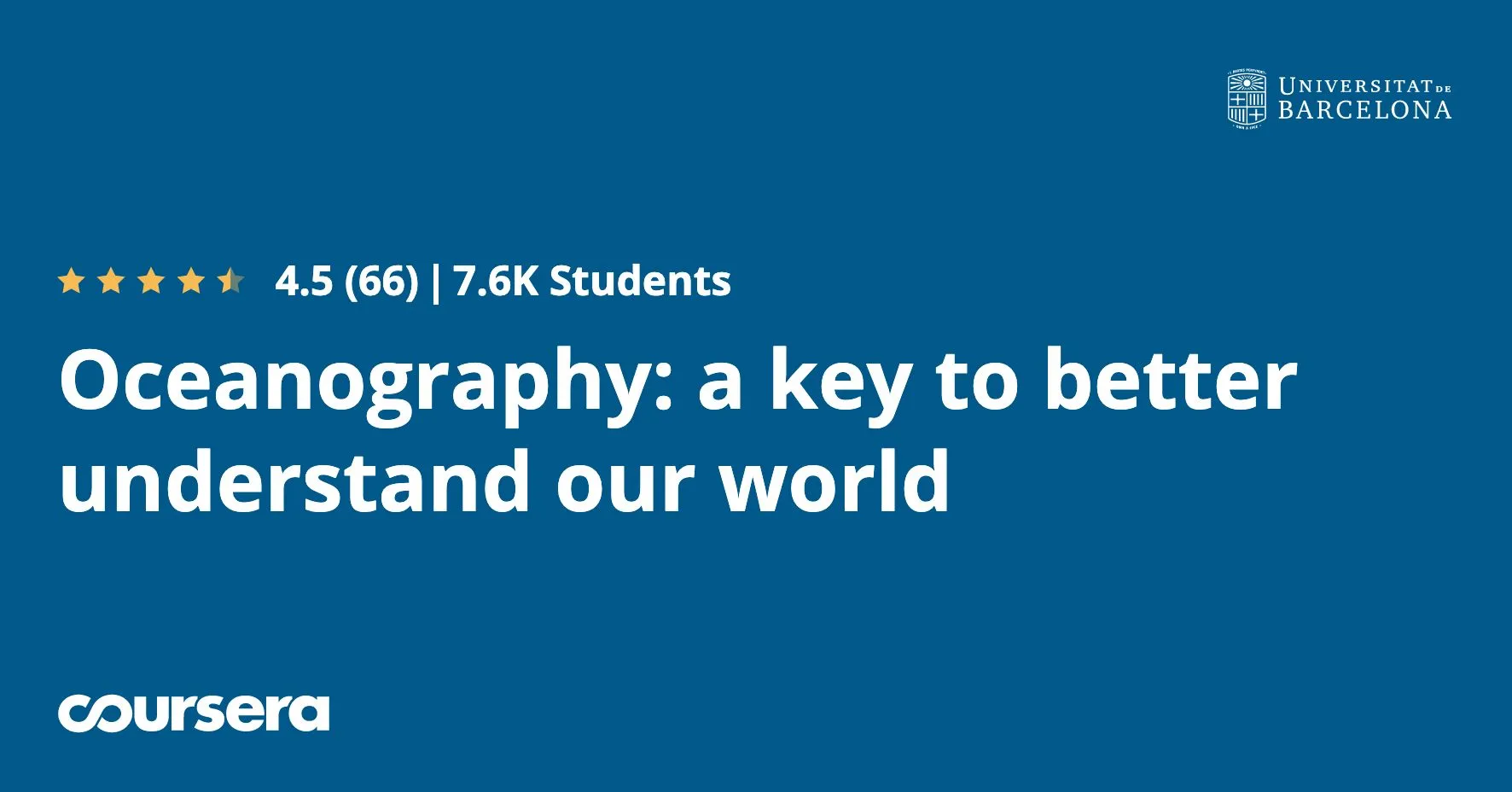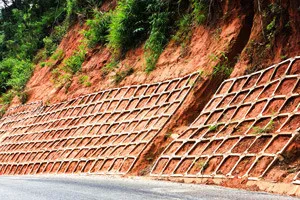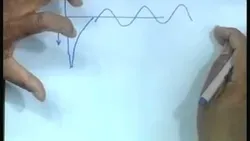
Oceanography: a key to better understand our world 
This course provides an opportunity to explore the wonders of oceanography, allowing us to gain a better understanding of our world and its oceans. By studying the physical, chemical, and biological processes of the oceans, we can gain insight into the global environment. ▼
ADVERTISEMENT
Course Feature
![]() Cost:
Cost:
Free
![]() Provider:
Provider:
Coursera
![]() Certificate:
Certificate:
No Information
![]() Language:
Language:
English
![]() Start Date:
Start Date:
Self Paced
Course Overview
❗The content presented here is sourced directly from Coursera platform. For comprehensive course details, including enrollment information, simply click on the 'Go to class' link on our website.
Updated in [March 06th, 2023]
This course, Oceanography: a key to better understand our world, provides an introduction to the study of the ocean. It begins with a video presentation that introduces the basics of oceanography, including temperature, salinity, and density. It then moves on to discuss vertical profiles for temperature and salinity on the Catalan coast in the Northwestern Mediterranean. Finally, the course covers vertical stability and its importance in understanding the ocean. By the end of the course, students will have a better understanding of the ocean and its role in our world.
[Applications]
This course provides a comprehensive introduction to oceanography and its application to better understand our world. After completing this course, participants will have a better understanding of the physical and chemical properties of the ocean, such as temperature, salinity, and density. They will also be able to interpret vertical profiles of temperature and salinity on the Catalan coast in the NW Mediterranean. Additionally, participants will gain an understanding of vertical stability and its implications for ocean circulation. With this knowledge, participants will be able to apply oceanography to their own research and better understand the ocean's role in our world.
[Career Paths]
1. Marine Biologist: Marine biologists study the behavior, physiology, and ecology of marine organisms. They use their knowledge to help protect and conserve marine ecosystems. With the increasing awareness of the importance of marine ecosystems, the demand for marine biologists is expected to grow.
2. Oceanographer: Oceanographers study the physical and chemical properties of the ocean, as well as the interactions between the ocean and the atmosphere. They use their knowledge to help understand climate change, ocean circulation, and the effects of human activities on the ocean. The demand for oceanographers is expected to increase as the need for understanding the ocean and its effects on the environment grows.
3. Marine Engineer: Marine engineers design, build, and maintain ships, boats, and other marine vessels. They use their knowledge of engineering principles to ensure that vessels are safe and efficient. With the increasing demand for marine transportation, the demand for marine engineers is expected to grow.
4. Marine Conservationist: Marine conservationists work to protect and conserve marine ecosystems. They use their knowledge of marine biology and ecology to develop strategies for protecting and restoring marine habitats. The demand for marine conservationists is expected to increase as the need for protecting and restoring marine ecosystems grows.
[Education Paths]
1. Marine Biology: Marine biology is the study of life in the ocean, from the smallest microorganisms to the largest whales. It is a rapidly growing field, with new discoveries being made every day. Marine biologists study the behavior, physiology, and ecology of marine organisms, as well as the interactions between them and their environment. They also investigate the effects of human activities on the ocean and its inhabitants.
2. Oceanography: Oceanography is the study of the physical, chemical, and biological properties of the ocean. It is a multidisciplinary field that combines the sciences of physics, chemistry, biology, geology, and geography. Oceanographers study the ocean's currents, waves, and tides, as well as its composition and structure. They also investigate the effects of human activities on the ocean and its inhabitants.
3. Marine Engineering: Marine engineering is the application of engineering principles to the design, construction, and operation of ships, boats, and other marine vessels. Marine engineers are responsible for the design, construction, and maintenance of ships and other marine vessels, as well as the systems and equipment used on them. They also develop new technologies to improve the safety and efficiency of marine operations.
4. Marine Conservation: Marine conservation is the practice of protecting and restoring marine ecosystems and species. It involves the protection of habitats, the management of fisheries, and the restoration of damaged ecosystems. Marine conservationists work to protect and restore marine habitats, species, and ecosystems, as well as to reduce the impacts of human activities on the ocean.
Course Syllabus
The formation of dense water and water masses
The Mediterranean a model of an ocean
The pressure gradient force
The Coriolis Force
Pros & Cons

Informative and indepth course

Interactive and interesting

Good overview of oceanography

Helpful course materials and videos

Language barrier

Poor translation into English

Inaccurate subtitles

Editorial mistakes
Course Provider

Provider Coursera's Stats at AZClass
Oceanography is key to better understanding their world. It is a branch of marine science that studies the physical and biological aspects of the ocean. It covers a wide range of topics, from the physical properties of the ocean, such as temperature, salinity and density, to biological aspects such as marine life, marine ecosystems and marine conservation. This course is an introduction to oceanography with a focus on the vertical profile of temperature and salinity along the northwestern Mediterranean coast of Catalonia. It will help learners gain a better understanding of the ocean and its role in their world.
Discussion and Reviews
0.0 (Based on 0 reviews)
Explore Similar Online Courses

Conceptualizing the Processing Model for Azure Databricks Service

Performance Testing Using JMeter

Python for Informatics: Exploring Information

Social Network Analysis

Introduction to Systematic Review and Meta-Analysis

The Analytics Edge

DCO042 - Python For Informatics

Causal Diagrams: Draw Your Assumptions Before Your Conclusions

Whole genome sequencing of bacterial genomes - tools and applications

Advanced Erosion Control Measures

Environmental Studies


Start your review of Oceanography: a key to better understand our world